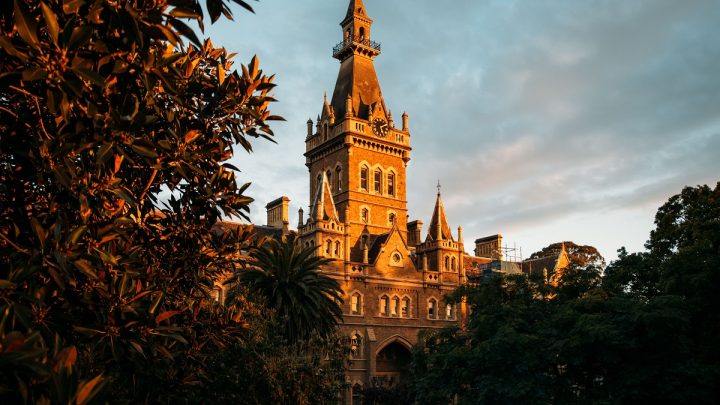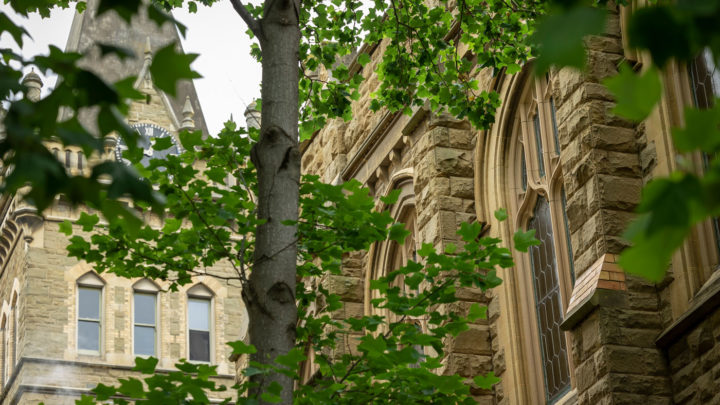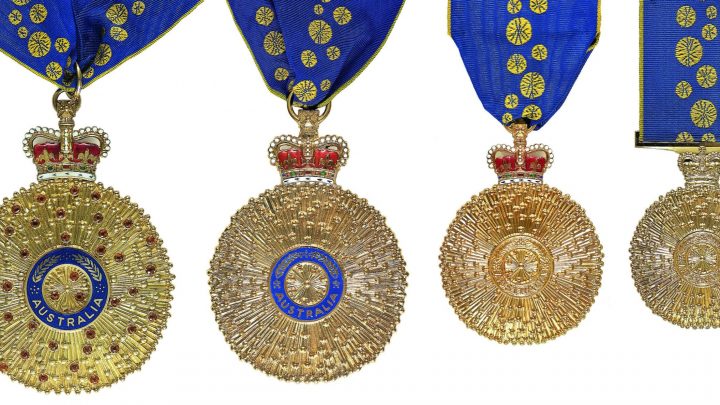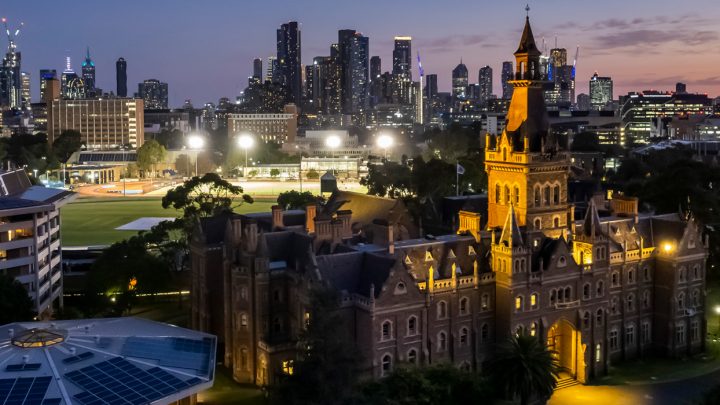
Australia Day Honours 2024
Ormond College extends its congratulations to the members of our community who have been recognised in the recent Australia Day Honours list. The late Mr Max Burnet OAM (OC 1959) has been...
Read MoreAt Ormond, we believe in a vision in which all Australians understand and value Aboriginal and Torres Strait Islander cultures as central to our national identity.
In 2008, the College took steps to ensure this was truly reflected in the Ormond community through the establishment of the Ormond College Indigenous Program. Ten years on, over 150 Indigenous students have called Ormond home, from first year undergraduates through to graduate students, from many different cultural and language groups right across Australia.
One longstanding member of the Ormond community to whom we owe great tribute is Associate Professor Jane Freemantle, President of the Senior Common Room at the time. Together with staff, faculty and students, Jane designed the Ormond College Indigenous Program as a comprehensive plan for the College to actively engage with and successfully support Indigenous students in partnership with the University of Melbourne.
When the university launched its Bachelor of Arts (extended) and Bachelor of Science (extended) programs – four-year degrees with one year of bridging subjects – to improve tertiary pathways for Indigenous students, it was important for Ormond to ensure we were best placed to effectively support Indigenous students in their transition to university. Students are required to live in residential colleges as part of the programs, and so we set out ways to formalise Ormond’s commitment in conjunction with the non-Indigenous community under the pillars of ‘respect, education and relationships’.
The strategic plan has been further developed within the framework of our Reconciliation Action Plan (RAP), outlining active engagement in line with reconciliation principles and practices among the wider Ormond community.
The approach of the Indigenous Program has been two-fold: establish appropriate systems to effectively support Indigenous students; and educate staff and non-Indigenous students about Indigenous culture and affairs. Acting Master Robert Leach says, “It is important that our Indigenous students feel supported in maintaining their connections to their own communities, and their own country, at the same time as they are given academic and pastoral support in College. Furthermore, bringing our Indigenous and non-Indigenous College members together is culturally enriching for everyone, and is part of Ormond’s commitment to diversity.”
Staff such as our Freemantle Fellow and Tutor and Mentor Coordinator are dedicated to providing academic and pastoral support for our Indigenous students, and our Indigenous Student Liaison provides peer-to-peer support alongside all Indigenous students, year on year. We have continued to work in close collaboration with Murrup Barak, the Melbourne Institute of Indigenous Development at the University of Melbourne, to ensure students thrive.
We also work to engage Indigenous students by breaking down as many financial barriers as possible.
Thanks to the generous support of many benefactors, our expansive financial assistance program has enabled many Indigenous students to be part of the Ormond community.
Educating our College community about Indigenous cultures is a key focus of the program. Non-Indigenous staff, students and faculty come together with our Indigenous community to participate in regular training in Indigenous health, culture and heritage, such as the recent mental health and wellbeing workshops run by AIME mentoring and our Wayapa Wuurrk workshop on Indigenous Mindfulness. Cultural awareness training is part of the O Week program for new students, and many special events and guest speaker presentations are centred around current and historical Indigenous affairs.
Community education extends to our College’s social and cultural calendar as well. We respectfully acknowledge important days and events for Indigenous cultures, such as NAIDOC Week, National Sorry Day and Mabo Day, among many others. It is standard practice to open Ormond events with an Acknowledgement of Country, and for Wurundjeri Elders to perform Welcome to Country ceremonies for large-scale special occasions.
“It’s important that recognition of Indigenous cultures has institutional backing like it does at Ormond. 10 years ago, Acknowledgement of Country would have been very rare outside of land council meetings. Now it’s part of social and cultural protocol, for Ormond and for Australia. It’s great to see.”
Levi McKenzie (2017), Chair of the Middle Common Room
Levi is a member of the La Perouse Aboriginal community of Botany Bay, Sydney, NSW. His mother is Gundangara, Worimi, and Yuin, and his father is Wiradjuri.
Indigenous themes are ever present in many student-led initiatives, from the Students’ Committee through to various philanthropic programs. For most years since 2009, we have facilitated a group of Indigenous and non-Indigenous students visiting the Bawaka homeland in the Northern Territory to attend Garma Festival, Australia’s peak Indigenous festival. As young people passionate about equal opportunities, our students are highly engaged in all Indigenous Program activities.
This year, we added three new flagpoles to the Ormond grounds. The Australian Aboriginal Flag, the Torres Strait Islander Flag, and the National Flag of Australia now take pride of place, flying high together as a symbol of reverence and our ongoing commitment.
We can be very proud of how far we have come as a community over the last decade. Our College will continue to take due steps to ensure Indigenous cultures remain a true cornerstone of the Ormond experience.
–

Ormond College extends its congratulations to the members of our community who have been recognised in the recent Australia Day Honours list. The late Mr Max Burnet OAM (OC 1959) has been...
Read More
Following the sudden illness and untimely death of former Ormond student Joe Kirby in 1992, his friends contributed donations to enable Ormond College’s establishment of the Joseph Kirby Fund. ...
Read More
The College extends congratulations to three alumni who have been recognised in the recent Kings’s Birthday Honours list: Mr Alexander J Forrest OAM (1962): for service to youth through Scouts....
Read More
2023 Ormond Connect Mentoring Program launch and OCA Committee
Read More